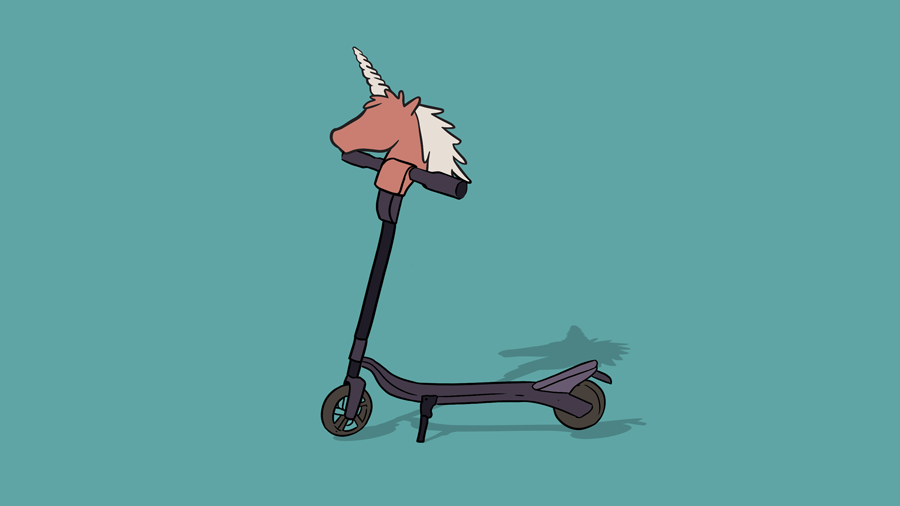Morning Markets: A quick re-think of the scooter boom.
It wasn’t too long ago that scooters and scooter startups were the hottest things in tech; quick ridership growth helped investors make successive, and successively larger wagers on companies like Bird and Lime. International competition is rife, and rental scooters are now sprinkled around the world.
Subscribe to the Crunchbase Daily
But there may be some turbulence on the horizon that we’ve touched on before, and I want to highlight that in the wake of a few news items and something excellent that TechCrunch’s Megan Rose Dickey wrote this week.
Bikes
Let’s start with the news. Ofo, a China-based bikesharing platform, has been in financial trouble for some time. In December, the company’s cash situation was known to be precarious. Despite raising huge sums of money, the company’s investments in hardware and growth seemingly wound up not generating sufficient profit to be viable. Reports surfaced this week that the firm had entered bankruptcy, seemingly capping the arc. However, Ofo later “denied reports of impending bankruptcy and maintained that the company is ‘currently operating normally,'” according to TechNode.
But what’s clear is that Ofo’s financial troubles continue. This set of factors are coupled to news from March that Meituan Dianping, which owns Ofo-rival Mobike, will scale back its operations following losses.
So the biggest bikesharing players, despite raising billions, are finding that their model didn’t work. Even at scale.
Scooters
You can see the parallel to the scooter world, of course. But the analogy may not hold. Indeed, it could be that scooters see enough rides per-day in the long-term to allow for their economics to bear out. As a sometimes rider of the little devices, that would be fine by me.
But a recent TechCrunch piece details how the economics don’t work quite yet:
More recently, operators like Bird and Skip have spoken more publicly about the rough reality of unit economics.
“When I think about opportunities to figure out our unit economics,” Shalin Mantri, head of product at [scooter company] Skip, told TechCrunch a few months ago, “it’s no secret now — it was probably a dirty secret of the industry, you know, a few months ago — that it’s hard to make money, and some of the biggest challenges to doing that are the cost of charging, the lifetime of the battery, the repair costs, the depreciation of these things being used in a fleet use case and the last is vandalism and theft, which is another big issue.”
There are probably a lot of places to squeeze margin out of the above list, but it will be difficult. The counter argument to pessimism is that companies like Bird and Lime are stocked with smart people tasked with solving the costs and improving unit economics. They may pull it off.
What I do think is notable, however, is how far the scooter groups (again, this is a global phenom, not something merely domestic) managed to raise and scale so quickly before figuring their model out a bit more. Perhaps there was so much capital available, looking for growth-oriented shares, that the scooter boom became a money arms-race?
Whatever the case, as the bikesharing boom unravels, we’re keeping an eye on scooters.
Illustration: Li-Anne Dias.

Stay up to date with recent funding rounds, acquisitions, and more with the Crunchbase Daily.








![Illustration of stopwatch - AI [Dom Guzman]](https://news.crunchbase.com/wp-content/uploads/Halftime-AI-1-300x168.jpg)


67.1K Followers